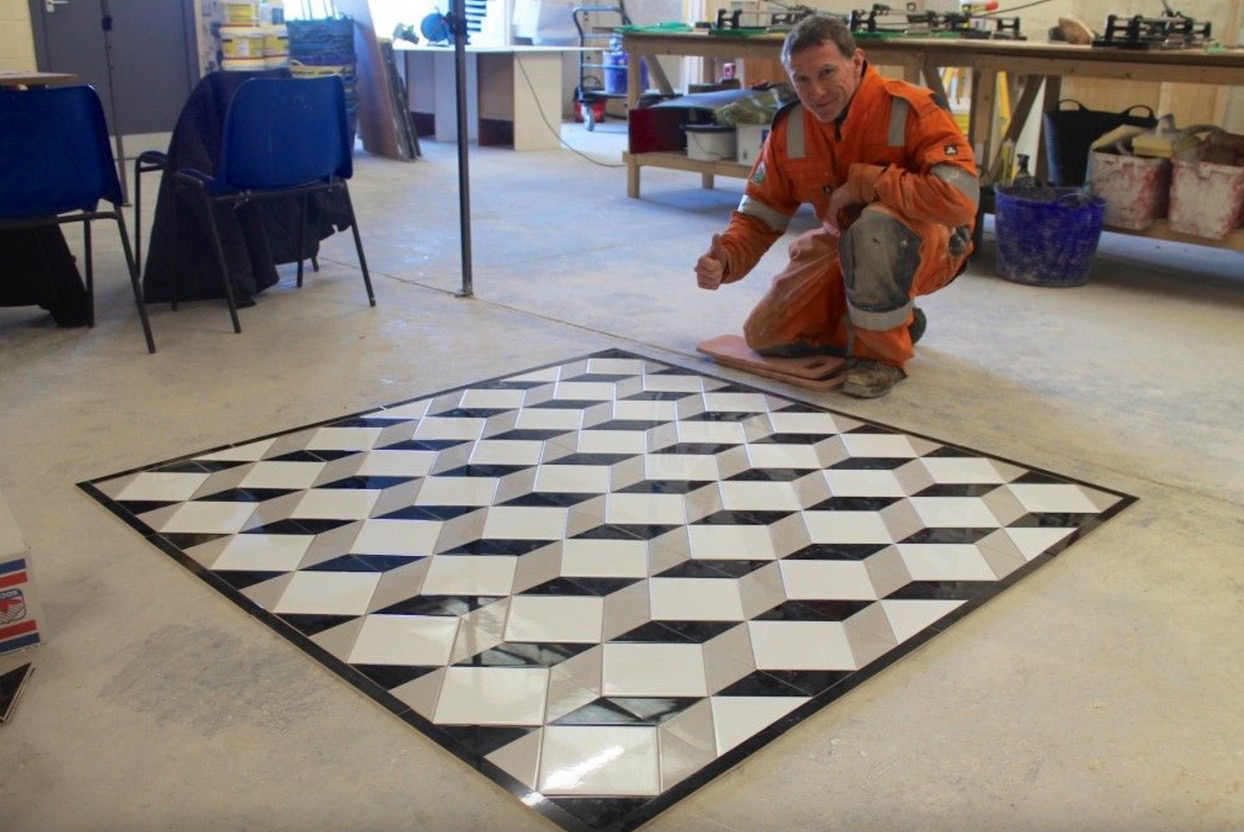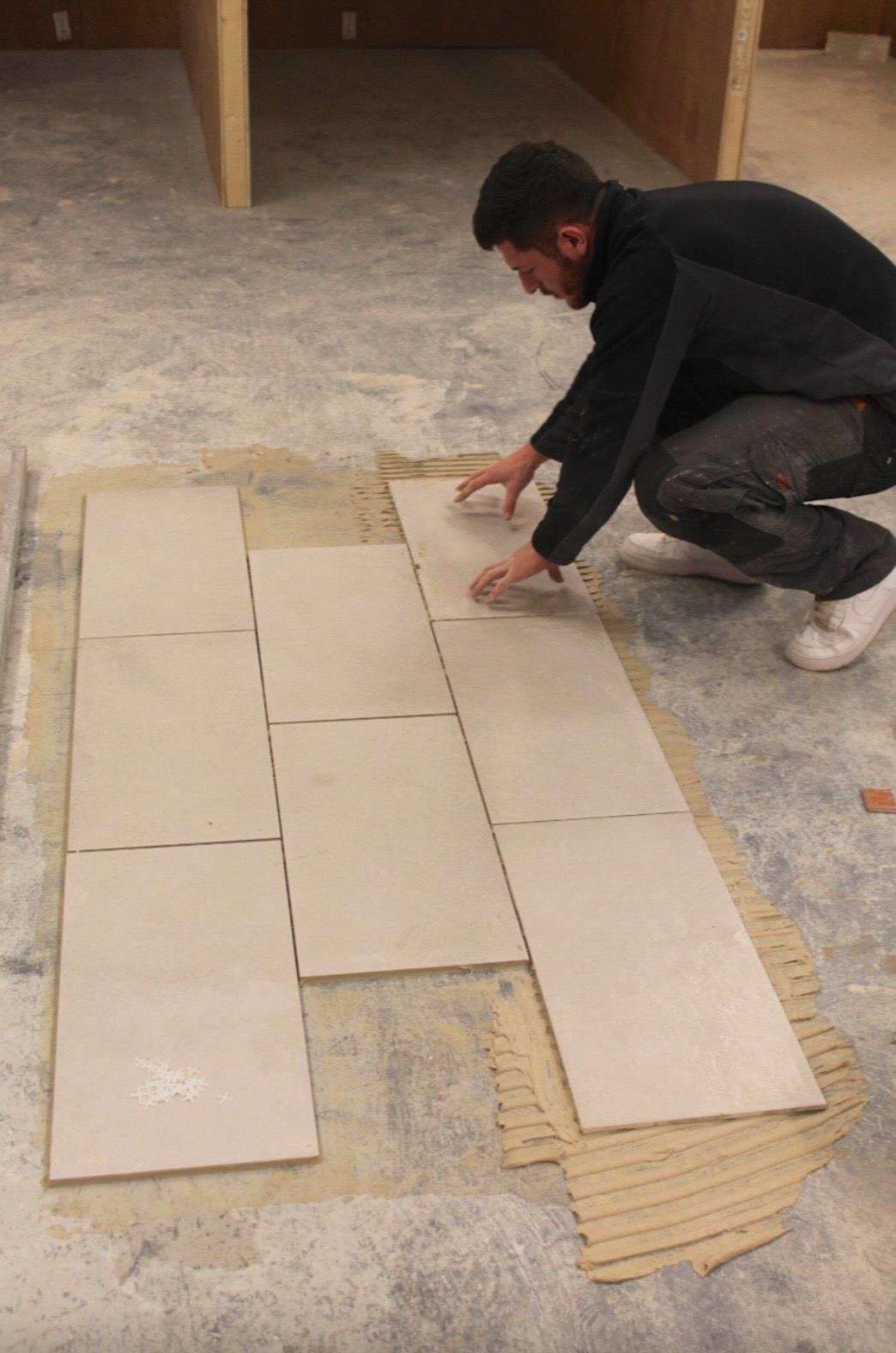What Is A Tiler?
Here at UK Pro Tiling Training, we are experts in tiling and take pride in educating those new to tiling, about the tiling industry and how exactly how to become a tiler.
For us, a tiler is more than somebody applying tiles to a wall. In fact, a tiler is a craftsman, a construction worker, a business man, an artist and more.
At UK Pro Tiling Training, we teach our students every aspect of what it takes to be a tiler, from running the basics of your business, to the actual tile applications.
Dictionary definition of a tiler
The Oxford English Dictionary of a tiler is: “A person who lays tiles”.
At UK Pro Tiling training, we use all our knowledge and expertise to educate the next generation of tilers to be as professional as they can possibly be. There is a clear difference between our professional tilers and those completing a DIY tiling job at home.
What entry requirements are there to become a tiler?
There are no official set requirements to become a tiler unless you want to work on a building site where an NVQ and a CSCS card would be required. In terms of Domestic tiling there are no qualifications required to work in people’s houses.
Younger people setting out in a career in tiling, could find an apprenticeship which would provide on-the-job training.
If you want to work on a construction site? What are the entry requirements for this?
You will need to enquire at the site you wish to work on if you are looking to become a tiler on a construction or building site. Some sites require tilers to carry a CSCS card (this stands for Construction Skills Certification Scheme card). This CSCS card proves that a person looking to work on a construction site, has the relevant health and safety skills to do so. The NVQ qualification is an assessment of your tiling skills, of which a card will be issued to prove this.
What skills do you need as a tiler?
As well as a tiling qualification, you’ll need an array of skills in order to become a tiler. These include:
- Being able to follow a design
- Patience to tile patterns
- Practical skills
- The ability to complete a job accurately
- Pay a good level of attention to detail
- Maths knowledge- calculating materials and costs, as well as for measuring up a job and cutting tiles
- Creativity
- Customer service skills
- Self-employment knowledge/basic business knowledge
How much can you earn as a tiler?
Self-employed tilers can earn anything between £25,000 to £60,000.
Those new to the tiling industry should expect to earn £25,000 in their first self-employed year. Highly experienced tilers could earn between up to £60,000. Essentially, the more experienced you are as a tiler, the more potential you have to earn more. You may grow your business to recruit other tilers, for example, so that there are more hands-on deck to complete customer projects.
What should be expected from the working patterns of a tiler?
Tilers often work between 37-45 hours a week, Monday to Friday. If you own your own business, your hours may be more flexible than if you work for another company.
Weekend work may occasionally be required by some customers, but this is not always the case. If you are working on a project out of your local area, you may need to stay away from home.
Some tilers may indeed work part-time to fit in with their lifestyle, although would still need to meet customer deadlines.
Types of tiler
A tiler will probably lay different types of tiles during their career, including wall tiles, floor tiles, ceramic tiles, porcelain tiles, mosaic tiles, tiles for kitchens, bathrooms and outdoor tiles, and more.
Instead of progressing and specializing in one type of tiling technique, material or project, career progression usually involves becoming a trainer or assessor in tiling.
Find out more about out tiling courses here at UK Pro Tiling Training
We have a variety of tiling courses available to suit your particular situation, whether you are looking to study full-time or begin your tiling career alongside a current part-time role. Whatever course you choose, you’ll be trained in all aspects of tiling, from business basics to applying various different tiling materials.



